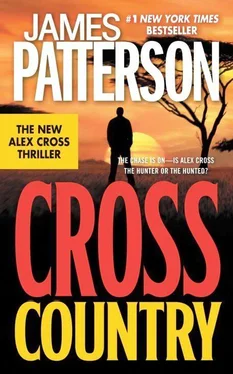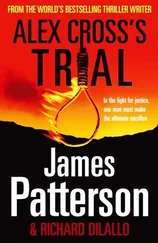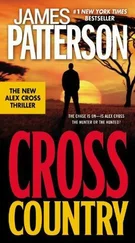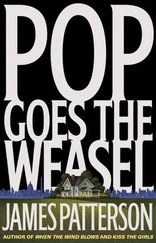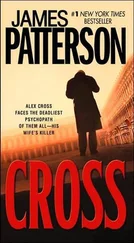While I waited, the gravity of this trip back started to sink in. I had to cover more than a thousand miles of unfamiliar countryside to Lagos, over multiple borders, with no more guidance than the maps that Moses only hoped he’d be able to find for me.
So when he came back, I had a proposition for him.
“Make this trip with me and you can keep the truck,” I said. “As a fair trade for your services.”
I expected a conversation, or at least a pause, but there was none.
He hoisted a goatskin bag of provisions from his shoulder into the truck, then handed me back the money he hadn’t spent.
“Yes,” he said simply. “I will do it.”
“SAMPSON?”
“Yeah?”
“This sucks big-time, you know that? I hate you.”
“Should have called tails, Bree.”
The house on Eighteenth Street was quiet now, not the nasty hive of activity it had been on the night of the murders. Today, this morning, Bree and Sampson had it to themselves. Not that either one of them wanted to be here at the crime scene.
That was why they’d tossed a coin on the front stoop.
Sampson got the master suite.
Bree got the children’s bedroom.
She blew into a latex glove, put it on, and unlocked the door, letting it swing to a stop before she stepped inside. Then she put her head down and hurried upstairs.
“I hate you, John,” she called out.
The kids’ bodies were gone, of course, but there was the residue of printing powder everywhere. Otherwise, the murder scene looked the same: matching yellow comforters soaked through with blood; wide spatter pattern on the bunk bed, rug, walls, and ceiling; two small desks on the opposite wall, undisturbed, as if nothing unspeakable had happened here.
Ayana Abboud had been ten. Her brother, Peter, seven.
The hit on their father, Basel Abboud, was a hell of a lot easier for Bree to comprehend. His columns in the Washington Times had been an early and insistent voice for US military intervention in Darfur, with or without UN Security Council buy-in. He wrote of widespread bribes and corruption both in Africa and Washington. By definition, the man had enemies on at least two continents.
The kind of enemies who go after your wife and kids while they’re at it? It sure looked that way. All four of them had been slaughtered in their house.
Bree turned a slow three-sixty, trying to see it all for the first time again. What jumped out at her now? What had they missed before? What would Alex see if he were here instead of in Africa?
Africa! For the first time, it made some sense to her for him to be there. This kind of violence – Africa was where it came from. This warning could only be fully understood in the context of Lagos, Sierra Leone, Darfur.
Certainly, the killers made no pretense of covering their tracks or hiding anything. Patent prints were visible everywhere that there was blood. Hundreds of latents had turned up as well, all over the house – the walls, the beds, the bodies of the dead.
Food had been hastily consumed in the kitchen: the remains of a pork chop dinner, Neapolitan ice cream scooped from a tub, soda pop, and liquor.
Imagine the level of stupidity, or the indifference to being caught, tried, and sentenced to lifetime in prison for these unspeakable murders.
Bree didn’t need results to know that none of these prints would flag in the FBI’s fingerprint ID system. Her best guess was that the killers were young African nationals with no priors in the US and, most likely, no record of having entered the country either. Some of them would probably match prints taken at Eleanor Cox’s home, some would not. They were savage ghosts whom someone older could use to do his dirty work, she thought. Very efficient. And very much fucked up in their heads. God, she hated him – whoever was behind this!
She came full circle and was staring at the children’s beds again when a soft tap-tap sounded at the dormer window behind her.
Bree wheeled around and nearly cried out in surprise. She had always had a fear of getting shot in the back.
A young boy, small and wide-eyed, hung on to the fixed burglar bars outside, and he was looking in at her. When their eyes met he let go of the bars with one arm and beckoned her over.
“I saw the bad murders. I saw every thing,” he said in a quiet voice meant only for her. “I know who the killers are.”
“PLEASE? I CAN tell you what happened in the house. Everything.” The boy’s small voice came muted through the glass. Bree was thinking that he couldn’t be more than eleven or twelve.
He was either scared or a good little actor or maybe he was both.
Sampson was in the bedroom behind her now. Neither of them drew a weapon; not that they trusted the boy for a second.
Bree had a hand on her piece.
“Tell me what you know about this,” she said.
She and Sampson approached the window from opposite angles. Bree moved in first. She had to duck her head to get inside the dormer alcove.
From here, she could see that the boy had his feet on a lip of decorative brickwork outside.
Beneath that was the roof of the back porch, and a small, November-dead garden maybe ten feet below.
“No further,” the boy warned, “or I run away. I can run very fast. You never catch me.”
“Okay. Let me get this out of the way, though.”
The old rope-and-pulley window sash took some coaxing, but finally Bree forced it up about six inches.
“What are you doing out there?” she asked.
“I know how it happened. They kill the girl and boy in dis very room. The others down de hall.”
His accent was African. Nigerian was Bree’s guess.
“How do you know so much?” she asked. “Why should I believe you?”
“I am the lookout, but soon they will make me go with them to kill others.” He looked past Bree and Sampson to the scene inside. “I do not want to do dis. Please – I am Cat’lic.”
“It’s all right,” Bree told him, “You don’t have to hurt anyone. I’m Catholic too. Why don’t you come down from there, and we can–”
“No” He took a hand off again, threatening to jump and run. “Don’t try nah tricks on me!”
“Okay, okay.” Bree held up her hands, palms out. Then she knelt down a little closer. “Just talk to me. Tell me more. What’s your name?”
“Benjamin.”
“Benjamin, do you know anything about a man they call the Tiger? Was he here?” Alex had told her about the Tiger during their phone call. Supposedly the killer was in Africa now, but maybe Alex’s information was wrong.
The boy nodded slowly. “I know, yes.” Then he said, “More than one, though. Not just one Tiger.”
That certainly stunned Bree and she assumed it would surprise the hell out of Alex too.
“Many men are called the Tiger?” she asked. “You’re sure about that?”
Another nod from the boy.
“Here in Washington?”
“Yes. Maybe two or three.”
“And in Nigeria?”
“Yes.”
“How many Tigers, Benjamin? Do you know?”
“They do not tell me, but there are many. Bosses of gangs are all Tigers.”
Bree looked over her shoulder at Sampson, then back again at the boy. “Benjamin, do you want to hear a secret?”
The question seemed to confuse him. His eyes went from side to side; he looked down again, checking his escape route.
And when he did that, Bree moved. Fast! Much faster than Benjamin thought she could.
SHE REACHED IN through the bars and got her hand around the lookout’s skinny wrist.
“Sampson, go!”
“Let go of me!” the boy yelled at her.
He tried to step away, and his weight wrenched her arm against the bar. There was no leverage from this angle. She could only try to ignore the pain, and hold on until Sampson got to the boy from below. Hurry, John, I’m losing him!
Читать дальше
